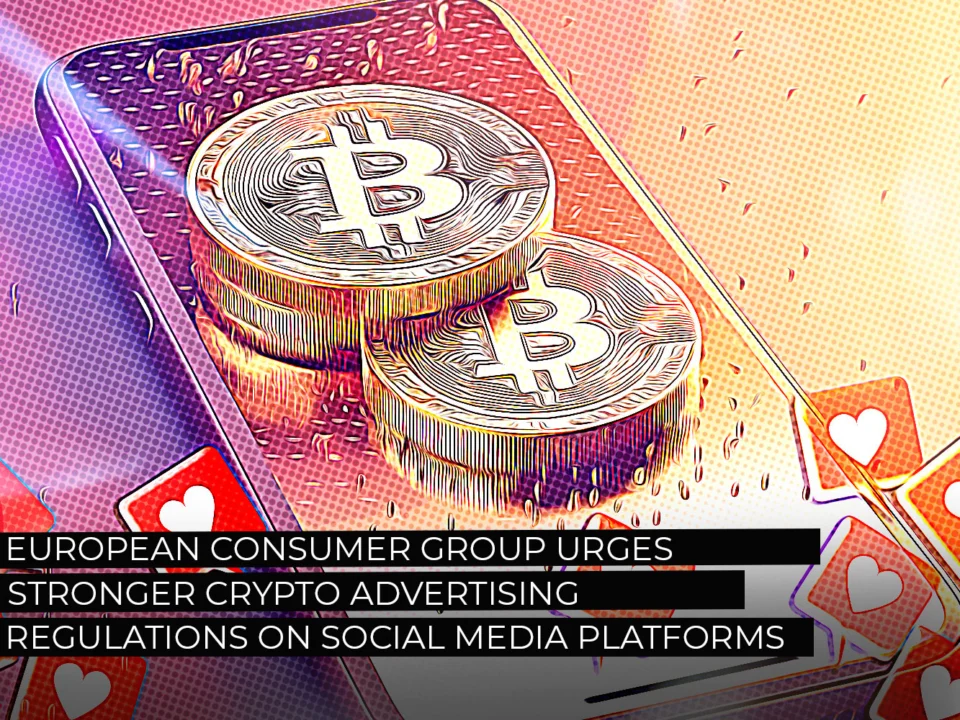European Consumer Group recently raised alarms about the prevalence of misleading crypto advertising on social media platforms. With increasing investments in digital currencies, the current regulations are falling short in protecting consumers from deceptive promotions. The group calls for stricter guidelines and enhanced oversight to prevent misinformation and ensure fair advertising practices across major social networks.
Concerns Over Misleading Crypto Advertising

Misleading crypto advertising has raised significant concerns among European consumer protection groups. Many advertisements offer unrealistic promises of high returns with minimal risks. Consequently, unsuspecting consumers often fall prey to these deceitful campaigns.
Key concerns include:
- Lack of transparency: Advertisements rarely present the full scope of risks involved in crypto investments.
- Targeting vulnerable groups: Often, advertising campaigns focus on individuals with little financial literacy or experience in digital assets.
- Use of celebrities: Featuring endorsements from well-known figures creates a false sense of security for potential investors.
For example:
| Issue | Impact |
|---|---|
| Unrealistic promises | Consumers may incur high losses |
| Opaque terms and conditions | Users may misunderstand the risks |
| Celebrity endorsements | False trust in the advertised product |
Thus, there is an urgent need for clearer and stricter regulations to ensure that advertising in the crypto space adheres to ethical standards and transparency principles. This can help protect consumers from falling victim to misleading claims and financial pitfalls.
Current Regulations and Their Shortcomings
Current advertising regulations strive to curb misleading practices in crypto marketing. However, they often fall short of their objectives, particularly on social media platforms. Here’s a closer look at the issue:
Shortcomings of Current Regulations:
- Inadequate Monitoring: Regulatory bodies frequently lack the resources to monitor advertising content thoroughly. This limitation allows many misleading ads to slip through the cracks.
- Ambiguous Guidelines: Existing guidelines often lack clarity, leaving too much room for interpretation. Advertisers exploit these grey areas to push deceptive promotions.
- Limited Penalties: The penalties imposed on violators are usually insufficient, failing to deter repeat offenders.
- Delayed Action: Response times from regulatory authorities are often slow, allowing harmful ads to be live long enough to mislead consumers.
Examples:
| Aspect | Current State | Impact |
|---|---|---|
| Monitoring | Insufficient resources | Misleading ads prevail |
| Guidelines | Ambiguous and open to interpretation | Exploitation by advertisers |
| Penalties | Minimal consequences for violators | No deterrence effect |
| Response Time | Delayed regulatory actions | Long periods of exposure |
Strong, clear, and enforceable regulations are necessary to protect consumers. Implementing stricter controls will help drive out deceptive advertising from social media platforms.
Recommended Actions for Social Media Platforms
To address the growing concerns over misleading crypto advertising, European consumer groups recommend several actions for social media platforms. Implementing these measures can significantly reduce the risk of consumers falling prey to deceptive practices.
Stronger Screening Processes: Social media platforms should adopt rigorous screening procedures to verify the legitimacy of crypto-related advertisers before allowing their advertisements to appear.
Clear Disclaimers: Every crypto advertisement should display clear and prominent disclaimers that inform users about the risks involved in cryptocurrency investments.
Regular Audits: Platforms need to conduct regular audits of active advertisements to ensure compliance with advertising standards and regulations.
User Reporting Mechanism: Establishing a robust reporting system will enable users to flag suspicious or misleading ads. Social media companies should act swiftly on these reports to protect their user base.
| Current Practices | Recommended Actions |
|---|---|
| Limited screening of advertisers | Rigorous screening processes |
| Inconsistent disclaimers | Clear and prominent disclaimers |
| Irregular advertisement checks | Regular audits |
| Weak user reporting systems | Robust user reporting mechanisms |
Adhering to these recommended actions will help social media platforms foster a safer environment for advertising, ultimately protecting consumers from potential financial harm.
Frequently Asked Questions
Why is the European consumer group calling for stronger regulations on crypto advertising?
The European consumer group is urging for stronger regulations on crypto advertising to protect consumers from misleading information and potential financial losses. With the rapid growth of the cryptocurrency market, the group is concerned that unregulated or poorly regulated advertisements can lead to consumers making uninformed and risky financial decisions.
How do social media platforms factor into the call for stronger crypto advertising regulations?
Social media platforms are widely used for promoting various products, including cryptocurrencies. The consumer group believes that these platforms can sometimes lack adequate safeguards against misleading or fraudulent advertisements. By enforcing stricter regulations, they aim to ensure that social media platforms take more responsibility for the content they host and help protect users from deceptive and potentially harmful advertisements.
What are some potential risks of insufficiently regulated crypto advertisements?
Insufficiently regulated crypto advertisements can pose several risks to consumers, including exposure to scams, hype about unproven projects, and misleading claims about potential returns. These risks can lead to significant financial losses for individuals who may not fully understand the complexities of cryptocurrency investments or the potential dangers of certain projects.
What measures could be implemented to improve crypto advertising regulations on social media?
To improve crypto advertising regulations on social media, several measures could be taken. These might include stricter verification processes for advertisers, clear guidelines on what constitutes a misleading advertisement, proactive monitoring and enforcement by both regulators and social media platforms, and the inclusion of mandatory disclaimers warning consumers about the risks associated with cryptocurrency investments. These measures would aim to create a safer environment for consumers engaging with crypto-related content online.







